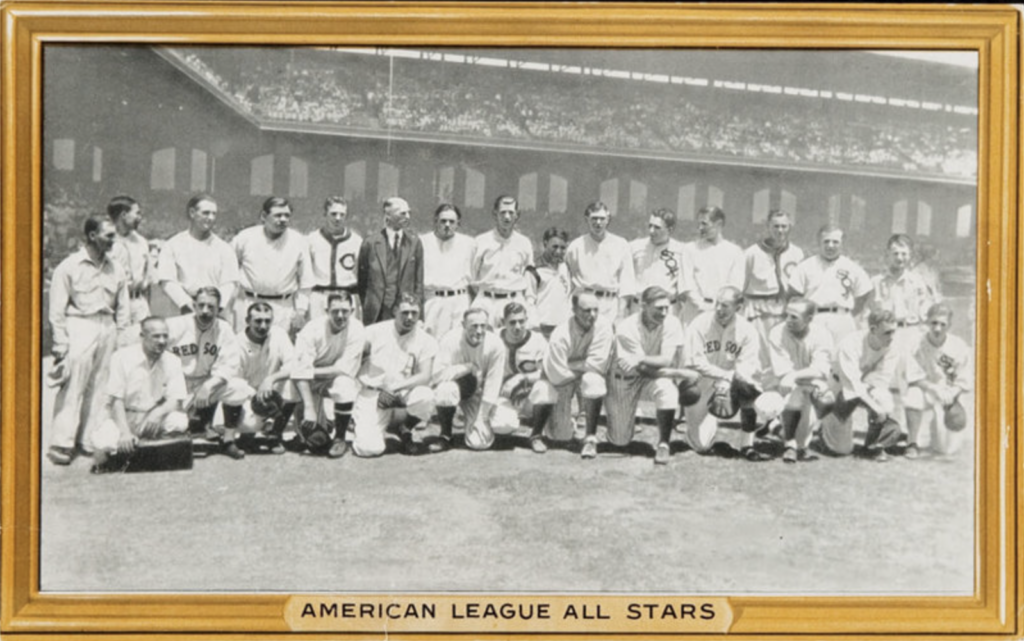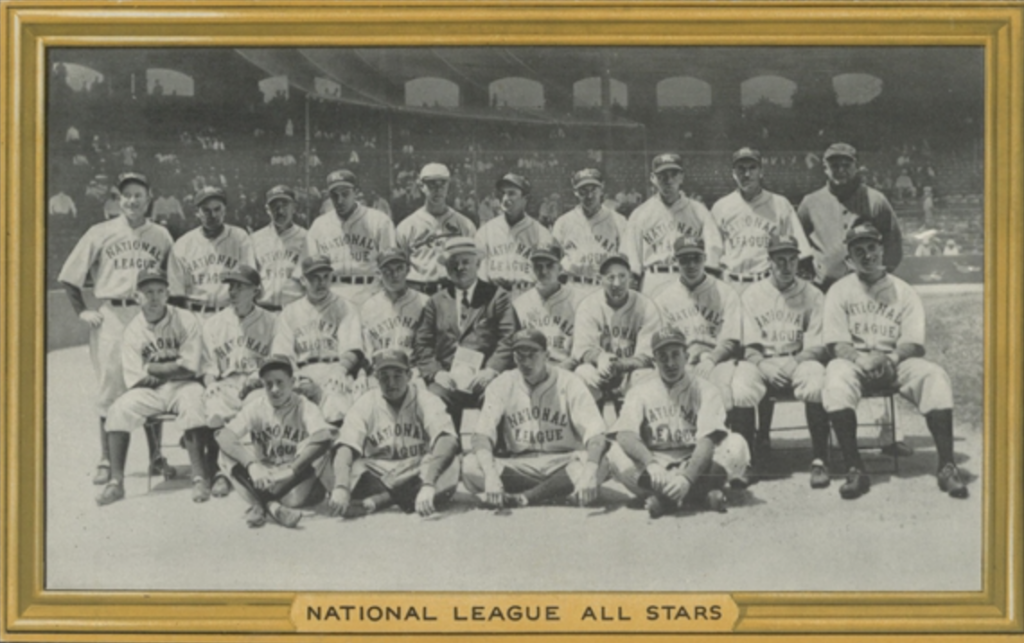
The Hobby and the Midsummer Classic
For more than 90 years, baseball fans have been enamored with the Major League Baseball All-Star Game, and with good reason: the game provides unforgettable moments from baseball’s biggest stars. From Babe Ruth’s home run in the first All-Star Game to Cal Ripken Jr.’s home run in the last one of his career, the Midsummer Classic is full of great players making all-time great memories.
The Beginnings
Nowadays, the biggest stars in Major League Baseball play each other throughout the year. That wasn’t always the case, however. Before the introduction of interleague play in 1997, the best American League and National League players would only face off in the World Series, and, even then, it was only the best from two of the 16 MLB teams at the time.
In 1933, the World’s Fair was held in Chicago. To generate excitement for a World’s Fair happening amid the Great Depression, Chicago Tribune sports editor Arch Ward came up with the idea to pit the best players from both leagues against each other in an exhibition game, with fans picking the players who would represent each league. It was billed as the “Game of the Century.”
The matchup was a huge success: Babe Ruth hit a two-run home run, nearly 50,000 fans showed up to Comiskey Park, and rave reviews from fans and the press poured in. Despite the intention for the game to be a one-off, the leagues agreed to meet again the following year, and the rest is history.
Notably, the fans did a remarkable job of selecting the top players in each league. Of the 36 players in the game, 20 went on to be elected into the Hall of Fame.
The Cards
In 1933, Goudey released its Big League Chewing Gum, which was packaged along with cards that we know today as the 1933 Goudey issue. As a promotion, the company offered a mail-away premium for a “free” Babe Ruth photo; all it would cost the collector would be 50 wrappers. As the season went on and the All-Star Game gained interest, the company expanded its offering to include a choice of Babe Ruth or a card showing either the AL or NL team photo. (Later in the year, they added a fourth choice, the 1933 World Champions.)
Since the game occurred six years before the first televised baseball game, fans who were not among the 50,000 lucky ones to see the game in person were stuck clinging only to newspaper images or a very brief highlight reel before a movie to relive the excitement of the game. These 1933-34 mail-away cards, known to us now as the R309-1 Goudey Premiums, allowed fans to own a photo of the complete team, with all the baseball legends seated together, for the first time.

R309-1 Goudey American and National League All-Star Cards

The R309-1 Goudey Premiums were also the first in a long, storied line of all-star cards that continue to this day. In its first year of making baseball-only card sets, Topps released the 1951 Major League All-Stars set. These 11 cards featured a black-and-white photo against a red background and were perforated so they could stand independently. They are exceedingly rare in the hobby today.
1951 Topps Connie Mack’s All-Stars
Topps produced a special subset for all-stars in its 1958 set, including the first Topps Stan Musial card. Similar subsets followed through 1962, then again from 1968 through 1970. After a few years off, Topps included dual all-star cards in 1974, showcasing the previous year’s starter at each position for each league. Beginning in 1975 and running through 1981, Topps included an icon or banner on cards depicting an all-star; then, starting in 1982, a second card for each all-star returned, much like the 1950s and 1960s.
Modern Game, Modern Cards
The MLB All-Star Game has gone through many different iterations: two games were played for a few years; the winner of the game determined home-field advantage in the World Series at one point; the universal designated hitter was introduced in 2010. No matter the rules of the game, though, the spirit of baseball’s biggest stars competing against each other remained the same. As the years have passed, the spectacle of the game has grown tentacles into nearly a whole week that now kicks off with the MLB Draft, the Home Run Derby, the Futures Game, and the Celebrity Softball Tournament.
Owing to its time on the calendar, the days before and after the game are the only days in the year during which none of the four major American sports have games. Between this and the growing reach of All-Star Game-adjacent events, the Midsummer Classic is a big deal in the sports world. For three days, the players attending the events are the center of the sporting universe.
As the game and its reach have grown, so have the offerings presented by Topps. Online-exclusive Topps Now cards allow collectors to purchase on-demand cards of key moments from the Home Run Derby and the game itself. For collectors who can show more patience, Topps includes All-Star Game and Home Run Derby cards in its Topps Update set, which releases a few months after the game. The company also typically offers an All-Star Game-branded factory set, in which each card is stamped with the game’s logo. Topps Chrome Update also has cards featuring players from the All-Star Game, which are presented in a refractor format.
This Year’s Game
Nobody does the All-Star Game bigger or better than Topps, and this year is no exception. While the regular version has a street date of August, Topps will have a special pre-release of its newest curated set, 2023 Topps x J-Rod: All-Star Game Exclusive Edition (Topps x J-Rod will be available August 2023 exclusively on Topps.com). This limited release contains three packs of seven cards per box, with one unique All-Star Game parallel in each pack. Collectors also have a chance at autographs seeded 1:2 boxes.
Topps always has a significant presence at the Capital One Play Ball Park, MLB’s version of Fan Fest. Their booth helps get fans hyped up for the game with games, prizes, contests that everyone can enjoy, and lots and lots of baseball cards. One of the highlights is the trading card wall, a wall covered in cards that collectors can take from and add to. The Topps booth hosts autograph signings, games like Pack Wars, and allows customers to receive wrapper redemptions for special cards available only at the event.
Alan Narz, a longtime hobby shop owner who has hosted over 100,000 people at Pack Wars over the last two decades, said that Pack Wars is “the most exciting pack opening experience you’ll ever have,” even for baseball fans who are not necessarily collectors.
Narz added that he is “overwhelmed by how much effort Topps puts in to make the All-Star Game exciting – not just promos, but talking to collectors about wanting to see products. Some of the best ideas that have gone into trading cards come from events like this. It’s just a great opportunity to get the chance to be face-to-face with collectors and fans.”










